“It was not a good day. It was not something that was unexpected though, because the shah was in the United States for 13 days by then. And there had been a number of demonstrations outside the embassy, so we’d grown accustomed to that. But on that particular day, which was a Sunday if you recall, they didn’t just come to demonstrate. They scaled the embassy walls and the rest is history.”
~Chuck Scott
Colonel, Retired, U.S. Army
Iran Hostage
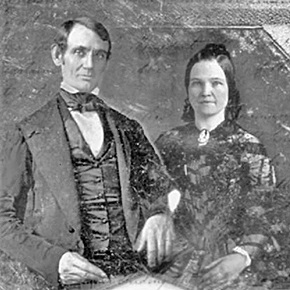
1842 – Despite her family’s objections to his poverty and lack of political prospects, Mary Anne Todd, 23, married Abraham Lincoln, 33, at her sister’s home in Springfield, Illinois.
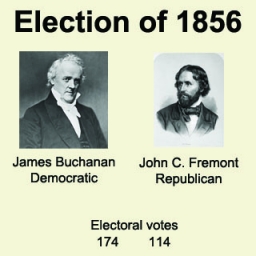
1856 – James Buchanan became the 15th President of the United States.
Incumbent Democratic President Franklin Pierce was denied his party’s nomination for a second term. He was widely unpopular due to the ongoing civil war in Kansas Territory, and Buchanan, who was at that time the U.S. ambassador to the United Kingdom, had not been involved in any of the controversy surrounding the unrest in Kansas.
As the central divide in the United States became slavery, the Whig party fell apart. This led to the founding of two new parties: the Republican Party and the American Party.
The main goal of the Republican Party – who nominated former Senator John C. Frémont of California – was to stop the expansion of slavery. The primary objective of the American Party, otherwise known as the “Know-Nothing” Party – who nominated former President Millard Fillmore – was to stop immigration.
The campaign had a different nature in the free states and the slave states. In the free states, there was a three-way campaign, which Frémont won with 45.2% of the vote to 41.5% for Buchanan and 13.3% for Fillmore; Frémont received 114 electoral votes to 62 for Buchanan.
In the slave states, however, the contest was for all intents and purposes between Buchanan and Fillmore; Buchanan won 56.1% of the vote to 43.8% for Fillmore and 0.1% for Frémont, receiving 112 electoral votes to 8 for Fillmore.
Frémont received no votes in ten of the fourteen slave states.
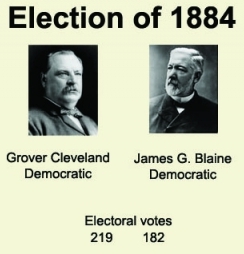
1884 – New York Governor Grover Cleveland defeated former Congressman James Blaine of Maine – who was, despite what the photo above states, a Republican – in an election that was even closer than the final Electoral College totals indicated.
The only individual at the Republican convention who had a chance to receive the nomination other than Blaine was General William Tecumseh Sherman. He ended speculation that he would run by making what has become known as a Sherman statement: “If nominated, I will not accept, and if elected I will not serve.”
There were no major substantive issues that separated the candidates; thus, the election turned on the candidates themselves. Blaine was attacked for his close relations with the railroad interests, from which it was claimed that he received financial benefits.
Blaine’s opponents published what were called the “Mulligan Letters,” which purported to show that Blaine received bribes.
Cleveland, on the other hand, was attacked for being immoral for his affair before his marriage with Maria Halpin, which produced a son. The Republicans taunted the candidate with the chant of “Ma Ma, Where’s my Pa?”
Cleveland barely managed to win his home state of New York, and with its 36 electoral votes, won the election.
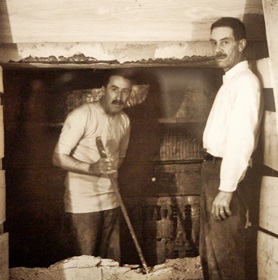
1922 – British archaeologist Howard Carter and his workmen discovered a step leading to the tomb of King Tutankhamun in the Valley of the Kings in Egypt.
The discovery began a monumental excavation process in which Carter carefully explored the four-room tomb over several years, uncovering an incredible collection of several thousand objects.
The most notable architectural find was a stone sarcophagus containing three coffins nested within each other.
Inside the final coffin, which was made out of solid gold, was the mummy of the boy-king Tutankhamun, preserved for more than 3,000 years.
Most of these treasures are now housed in the Cairo Museum.
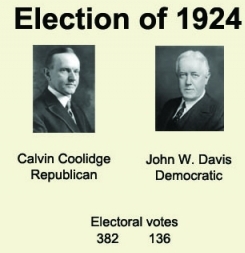
1924 – Calvin Coolidge, who had become president following the death of Warren G. Harding, easily won re-election.
Coolidge’s opponent was former U.S. Ambassador to the United Kingdom John Davis, of West Virginia. Davis was a compromise candidate who was selected after the Democratic convention in New York was dead-locked after 103 ballots.
Senator Robert LaFollette of Wisconsin, ran as a candidate of the Progressive Party.
The Republican campaign slogan was “Keep Cool With Coolidge.” Coolidge did minimal campaigning. The death of his son further curtailed his activities.
Davis campaigned extensively, attacking the inactivity of Coolidge. LaFollette also campaigned vigorously, promoting an Progressive platform that called for far-reaching reforms.
With no wars either at home or abroad and the economy strong, Coolidge won 54 percent of the popular vote.
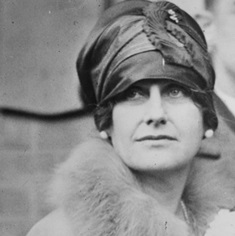
1924 – Nellie T. Ross of Wyoming, a Democrat and the widow of former Governor William Ross – who had served a year and a half before dying from complications from an appendectomy – was elected the nation’s first woman governor … and she won without campaigning.
One advantage Ross was seen to have was the desire of the citizens of Wyoming to be the first to elect a woman governor, after having been the first state to grant women the right to vote in 1869.
In 1933, Ross became the first female Director of the United States Mint, a position she held until her retirement in 1953.
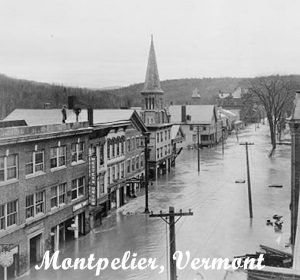
1927 – 10 days of extremely heavy rain in New England caused major flooding which went on to kill 200 people and cause millions of dollars in damages.
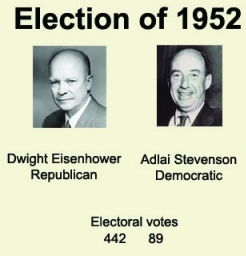
1952 – Dwight D. Eisenhower became the 34th president of the United States.
Eisenhower, a World War II hero who was the commanding officer at the D-Day invasion, edged Senator Robert Taft for the Republican nomination.
After he was defeated in the New Hampshire Democratic primary, President Harry Truman withdrew his candidacy and supported Governor Adlai Stevenson of Illinois.
With the United States in the middle of the Korean War, and Cold War fears running deep throughout the land, Stevenson faced an uphill battle from the start.
Near the end of the campaign, Eisenhower, in a major speech, announced that if he won the election he would go to Korea to seek an end to the war.
His great military prestige, combined with the public’s weariness with the conflict, proved overwhelming, and Ike trounced Stevenson by nearly seven million popular votes.
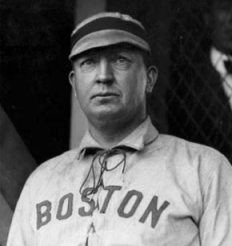
1955 – Baseball Hall of Fame Pitcher Cy Young died of natural causes at the age of 88.
During his 21-year career, Young established numerous pitching records, some of which have stood for a century.
One of those records – 511 career wins – will never be broken. The Cy Young Award, which is presented to the best pitchers in both leagues each year, is named in his honor.
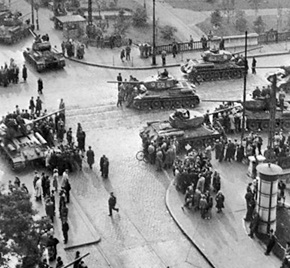
1956 – A spontaneous national uprising that had begun 12 days before in Hungary was viciously crushed by Soviet tanks and troops on this day.
The Soviet action stunned many people in the West. Soviet leader Nikita Khrushchev had pledged a retreat from the Stalinist policies and repression of the past, but the violent actions in Budapest suggested otherwise.
An estimated 2,500 Hungarians died and 200,000 more fled as refugees.
Voice of America radio broadcasts and speeches by President Dwight Eisenhower and Secretary of State John Foster Dulles had recently suggested that the United States supported the “liberation” of “captive peoples” in communist nations.
Yet, as Soviet tanks bore down on the protesters, the United States did nothing beyond issuing public statements of sympathy for their plight.

1958 – Angelo Roncalli became Pope John XXIII.
He was expected by many to be a caretaker and transitional pope, but he astonished the church and the world with his energy and reforming spirit.
His convening of the Second Vatican Council and his changing of the church’s attitudes toward those who were not Catholic were milestones.
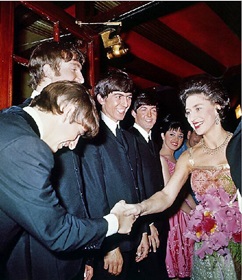
1963 – The Beatles played their legendary Royal Command Performance at the Prince of Wales Theatre, London, before the Queen Mother and Princess Margaret.
By this point Beatlemania was an established phenomenon, with the group drawing huge and frenzied audiences across the country and beyond. Although they were seventh on the 19-act bill on this night, they were by far the most anticipated performers to appear.
It was at this performance that John Lennon made the announcement which won over any remaining doubters and guaranteed the group headlines in all the next day’s newspapers.
“For our last number I’d like to ask your help. The people in the cheaper seats clap your hands. And the rest of you, if you’d just rattle your jewelry.”
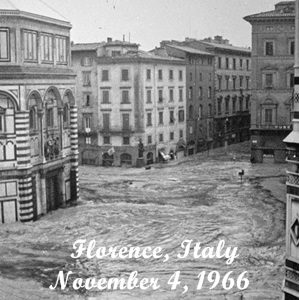
1966 – The Flood of the Arno River in Florence, Italy, killed hundreds of residents and left 5,000 families homeless.
Approximately 600,000 tons of mud, rubble and sewage severely damaged or destroyed numerous collections of written work and fine art for which Florence is famous.
In fact, it is estimated that between 3 and 4 million books/manuscripts were damaged, as well as 14,000 movable works of art.
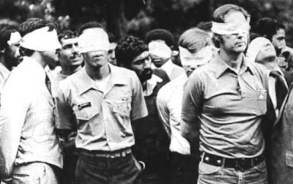
1979 – Hundreds of Iranian students stormed the U.S. Embassy in Tehran, taking 90 hostages – of which 66 were American..
The students, supporters of the conservative Muslim cleric Ayatollah Khomeini, were demanding the return of Iran’s deposed leader, the Shah Mohammed Reza Pahlevi, who had fled to Egypt in January 1979 and by November, was receiving cancer treatment in the U.S.
After the student takeover, President Jimmy Carter ordered a complete embargo of Iranian oil.
The embargo only exacerbated an energy crisis that had been going on since the beginning of 1979. An Iranian oil-field strike and the January revolution had disrupted oil supplies from that part of the Middle East, and the OPEC cartel had announced a per-barrel fee increase that sent prices inching toward an all-time high.
By the time the students took over the Embassy in November, Americans were already dealing with the effects of this crisis: long lines and short tempers at gas pumps, panics over gasoline and heating oil shortages, and frustration with the inefficient, gas-guzzling vehicles manufactured by American automakers.
The hostage-takers, declaring their solidarity with other “oppressed minorities” and “the special place of women in Islam,” released 13 women and African Americans in the middle of November 1979. Another hostage was released due to illness in July 1980.
The remaining 52 American hostages were held captive until January 20, 1981 – a total of 444 days of captivity.
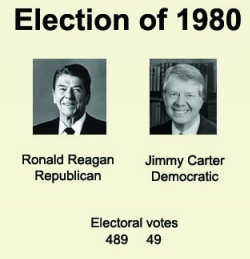
1980 –Republican Ronald Reagan became the 40th President of the United States.
Reagan, the former governor of California, fought off bids by former Congressman George H. W. Bush of Texas, Congressman John B. Anderson of Illinois, and several other candidates to win the Republican nomination.
Incumbent president Jimmy Carter’s unpopularity and poor relations with Democratic leaders encouraged an intra-party challenge by Senator Ted Kennedy, but even though he was able to defeat Kennedy, Carter had several obstacles to overcome in the general election.
The twin issues of the American hostages in Iran and what the Republicans called the misery index (inflation plus unemployment) had a devastating effect on Carter’s reelection bid.
Third-party candidate Anderson, running as an Independent, won nearly six million votes, but giving all of those votes to Carter still wouldn’t have won him re-election.
Reagan won eight million more popular votes than Carter, resulting in an electoral landslide of epic proportions.
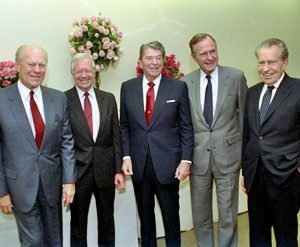
1991 – The Ronald Reagan Presidential Library and Museum was dedicated by five American presidents (the first gathering of five U.S. presidents).
Former presidents Gerald Ford, Jimmy Carter and Richard Nixon joined President George Bush and Reagan at the ceremonies in Simi Valley, California.

1995 – Israeli Prime Minister Yitzhak Rabin was fatally shot after attending a peace rally held in Tel Aviv’s Kings Square in Israel. Rabin later died in surgery at Ichilov Hospital in Tel Aviv.
The 73-year-old prime minister was walking to his car when he was shot in the arm and the back by Yigal Amir, a 27-year-old Jewish law student who had connections to the far-right Jewish group Eyal.
Israeli police arrested Amir at the scene of the shooting, and he later confessed to the assassination, explaining at his arraignment that he killed Rabin because the prime minister wanted “to give our country to the Arabs.”
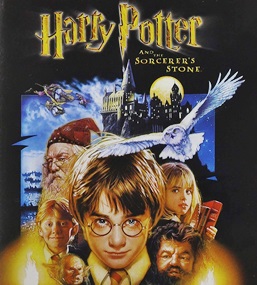
2001 – Harry Potter and the Philosopher’s Stone, the first film adaptation of the books by J. K. Rowling, premiered at the Odeon Leicester Square in London.
In the United States, it made $32.3 million on its opening day. On the second day of release, the film’s gross increased to $33.5 million. In total, it made $90.3 million during its first weekend.
In total, the film earned $975 million at the worldwide box office, $318 million of that in the U.S. and $657 million elsewhere.
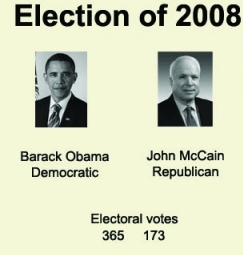
2008 – Senator Barack Obama of Illinois defeated Senator John McCain of Arizona to become the 44th U.S. president, and the first African-American elected to the White House.
More than 69.4 million Americans cast their vote for Obama, while 59.9 million voters chose McCain, a war veteran who emphasized his considerable legislative experience and knowledge of world politics.
Obama benefited from being able to blame the Republican Party for an economy that was heading into recession.
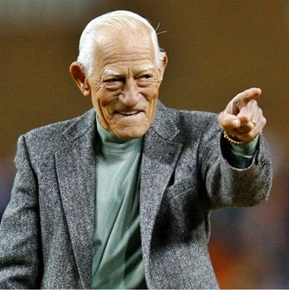
2010 – Baseball Hall of Fame manager George Lee “Sparky” Anderson, the first manager to win the World Series in both leagues (Cincinnati and Detroit) died of complications from dementia. He was 76.
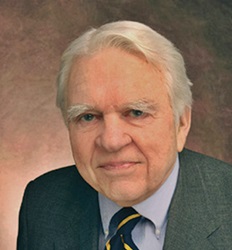
2011 – Andy Rooney died after developing postoperative complications from surgery. His death at 92 came less than five weeks after he had retired.
Rooney first found fame as a field correspondent for Stars And Stripes during World War II, but became best known for his weekly broadcast “A Few Minutes with Andy Rooney” as part of 60 Minutes
Compiled by Ray Lemire ©2019 RayLemire.com / Streamingoldies.com. All Rights Reserved.
I never realized that John Lennon had such a sense of humor. As I’ve watched the recent videos you’ve posted I’ve a side I didn’t see before. What a discovery King Tut’s tomb was … imagine finding it — with the artifacts it held …. makes me wonder how many are still out there that have not been located …. I will always feel that Ronald Reagan’s love for this country could be seen in everything he did …. and Andy Rooney WAS 60 Minutes … thanks Ray — so much packed into every day — love these and BTW meant to comment on Lou Gehrig has always been an inspiration for hope and strength – ALS continues to be a dreaded disease that ravages the body …. have a number of friends who were diagnosed …. hope a cure comes soon for that one …
Thank you, Barbara … John did have his moments of levity. 🙂 Ronald Reagan was (and remains) my favorite president, and I agree with your thoughts on Andy. He WAS the reason I watched ’60 Minutes’.
If there is someone who doesn’t understand the legacy Lou Gehrig left us, they haven’t been paying attention.
Rock The Day!
Late but I was here (lol) 🙂
Better late than never, Lee 😉
I also loved John, Ronald and Andy! What can I say? My Daddy has a good head on his shoulders and I’m a chip off the ole block! Many interesting events happened today! My students are always surprised when I tell them I have never read Harry Potter. Thanks for making every day special!
You ARE a chip off the ole block, Wendyl! (and I have never read a Harry book, either) ❤